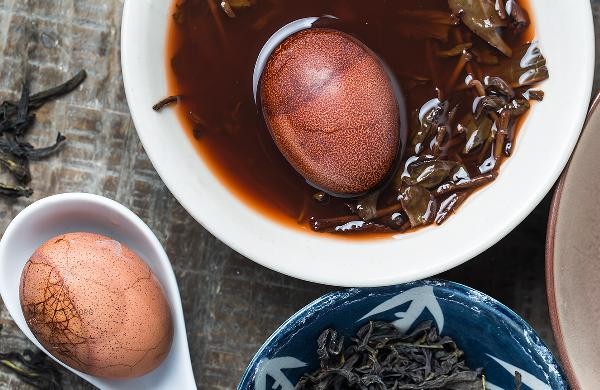The nutritional value of Tea egg and boiled eggs have their own priorities, and the specific selection needs to be determined according to individual needs. The protein absorption rate of boiled eggs is higher, while Tea egg increase some minerals and antioxidant substances due to the brine processing.

1. Protein Comparison
The protein structure of boiled eggs is not damaged, and their bioavailability is close to complete absorption. The egg white protein and egg transferrin in egg white can efficiently provide essential amino acids, suitable for fitness enthusiasts or postoperative recovery period supplementation. The protein of Tea egg was slightly denatured after being stewed for a long time, but the difference had limited impact on daily intake.
II. Mineral content. Boiled eggs contain only phosphorus, selenium, and other elements from the eggs themselves, making them more suitable for hypertensive individuals who need to control their sodium intake.
3. Vitamin Retention
The water-soluble vitamins such as vitamin B2 and B12 in boiled eggs are preserved intact, especially the vitamin D in the yolk is almost not lost. After Tea egg are braised at high temperature, some B vitamins will be lost to the brine, but tea polyphenols in tea can make up for some antioxidant substances.
4. Digestion and absorption

Boiling eggs has a faster protein digestion rate and a gastric emptying time of about 2 hours, making it suitable as a quick energy source for breakfast. Tea egg can make the protein structure more compact and the digestion time longer, which can provide a more lasting sense of satiety. However, those with weak gastrointestinal function may have flatulence.
V. Special ingredient
Tea polyphenols contained in Tea egg have antioxidant properties, but tannin in brine will slightly affect iron absorption. Boiling eggs has a lower degree of cholesterol oxidation, and the lecithin in the yolk exists in its natural form, making it more cardiovascular friendly. From the perspective of nutritional balance, it is recommended to consume two types of eggs alternately. Boiled eggs can be used as the main source of daily protein, and Tea egg are suitable for flavor supplement. Pay attention to control the consumption frequency of Tea egg to avoid excessive sodium intake. When consumed with fresh vegetables and fruits, it can balance the stimulation of braised foods. Special populations such as kidney disease patients should consult nutritionists to develop personalized plans, and it is recommended that children consume no more than one egg per day.









Comments (0)
Leave a Comment
No comments yet
Be the first to share your thoughts!